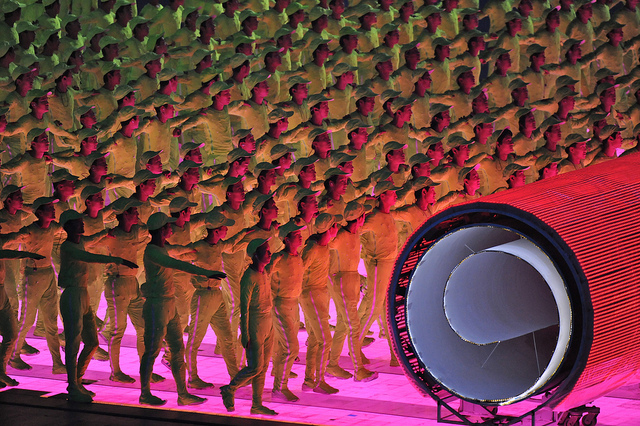The global dimension of China’s influence operations

The current debate in Australia about China’s influence operations is critically important to protect our interests and way of life. However, we need to avoid an overwhelmingly Australia-centric focus in seeking to understand the global nature of China’s ‘sharp power’. This will enable a better grasp of the true scale of the problem and provide new opportunities to work with like-minded countries in Asia and elsewhere in crafting an effective response.
To begin with, sharp power shouldn’t be conflated with ‘soft power with Chinese characteristics’. Instead, it’s a vital instrument to fulfil President Xi Jinping’s ambition for China to become a global power by piercing, penetrating or perforating the political and information environments in target countries.
Thus it’s about projecting China’s authoritarian influence abroad to shape a more favourable environment for achieving its objectives, including fostering division within and among US allies and partners. And under Xi’s leadership, sharp power activities have become ever-better resourced and more active. For instance, the United Front Work Department has gained significantly in political stature, mandate and staff, gaining some 40,000 new cadres in the past few years. The Propaganda Department has directed an enormous expansion of China’s official worldwide media presence.
As The Economist noted, a particular challenge in countering China’s ‘sharp power’ is that it’s ‘pervasive, breeds self-censorship and is hard to nail down’. That said, many countries have been subjected to these operations. Each of Australia’s Five Eyes partners—New Zealand, the United States, Canada and the United Kingdom—has been affected.
In Southeast Asia, concerns have grown in Singapore, and China’s sharp power has arguably been at work to influence governments in Malaysia, the Philippines, Cambodia and Myanmar. It could also play a role in a potential Chinese military base in Vanuatu owing to that island nation’s growing debt to Beijing.
As well, major European powers have woken up to the challenge, which was demonstrated by, for example, Greece’s veto of an EU condemnation of China’s human rights record at the United Nations in June 2017. That move was attributed to massive Chinese infrastructure investments in Greece.
A series of think tank reports (here and here) also examine the problems for the continent posed by Chinese sharp power. During a visit to China in January, French President Emmanuel Macron voiced concerns that some European countries were much more open to Chinese interests, ‘sometimes at the expense of a European interest’. German Chancellor Angela Merkel has insisted that China shouldn’t link its economic investments in the Western Balkans to political demands.
At the Munich Security Conference in February, German Foreign Minister Sigmar Gabriel warned that China was ‘constantly trying to test and undermine the unity of the European Union’ through a policy of ‘sticks and carrots’. He also said that Beijing was using its Belt and Road Initiative (BRI) infrastructure fund specifically to promote a system of values different from the West’s.
The United Kingdom, France and Germany have also introduced mechanisms to monitor and block Chinese takeovers of high-technology companies in sensitive sectors. Moreover, they support efforts to tighten EU-wide regulations to govern Chinese investment so that Chinese entities cannot exploit the weaker regulatory systems of some European countries to gain access to potentially sensitive technologies. Unfortunately, it appears that such EU-wide efforts will fall short.
Australia, therefore, is far from the outlier in responding to China’s sharp power. Instead, its efforts are part of an emerging trend around the world to push back against Chinese influence activities. Sensibly, Canberra’s steps to tighten the rules on Chinese investments and to defend Australia’s way of life are based on the understanding that Beijing’s sharp power is likely to intensify and, left unchecked, could trigger a major ideological confrontation with the West and others.
Australia’s leading role in this instance has been well-regarded by many allies and partners, and can serve as the foundation for concerted strategies of like-minded countries. While we agree with Joseph Nye that countries shouldn’t overreact to China’s sharp power, we also believe that a much more concerted and unified strategy is required to address this challenge.
Part of this strategy should include greater levels of strategic cooperation, consultations and intelligence sharing to build more resilience across like-minded countries. To begin, Australia and its allies should give higher priority to holding regular consultations at senior political and operational levels to share experiences and intelligence about Chinese sharp power activities. These discussions could also canvass appropriate joint responses.
Fostering deeper understanding with Singapore on this issue will be key to assessing related trends in Southeast Asia. Major European powers such as Germany and France are likely to seek closer consultations and cooperation, too. That will provide Australia with further opportunities to play a quiet leadership role.